AI music tools have revolutionized music production, democratizing access to advanced technology once reserved for major studios. These tools enable musicians to break through creative blocks, explore new sounds, and achieve professional results with ease. By analyzing musical data, offering personalized insights, and automating tasks, AI music tools enhance efficiency, foster innovation, and unlock fresh avenues for artistic expression, both for professionals and aspiring artists.
“Welcome to our comprehensive guide on revolutionizing music creation with AI! In this blog, we explore the burgeoning world of artificial intelligence in music production and its diverse applications. From understanding the fundamentals of AI music tools to delving into their transformative power, we uncover how these technologies are unlocking new creative heights for musicians. Discover how AI streamlines workflows, enhances composition, and shapes the future of the music industry with powerful yet accessible ai music tools.”
- The Rise of AI in Music Production: Unlocking Creative Possibilities
- Understanding AI Music Tools: Types and Applications
- Enhancing Musical Composition with Artificial Intelligence
- AI for Musicians: Streamlining Workflows and Boosting Productivity
- The Future of Music: AI's Impact on Industry Trends
The Rise of AI in Music Production: Unlocking Creative Possibilities
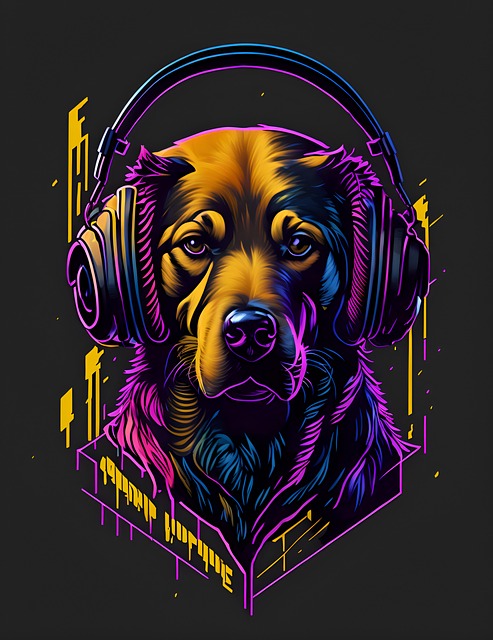
The world of music production has witnessed a groundbreaking transformation with the rise of Artificial Intelligence (AI) tools, offering musicians and producers an array of innovative possibilities. AI music tools are revolutionizing the creative process by providing access to advanced technology once reserved for major studios and seasoned professionals. These tools empower artists to experiment, explore, and create like never before.
From generating melodic sequences and harmonic progressions to assisting in composition and arrangement, AI is becoming an indispensable partner in music creation. It allows musicians to overcome creative blocks, discover new sounds, and streamline their workflow. With its ability to analyze vast amounts of musical data, AI can offer unique insights, suggest improvements, and even adapt to individual artist styles, making music production more accessible, efficient, and exciting.
Understanding AI Music Tools: Types and Applications
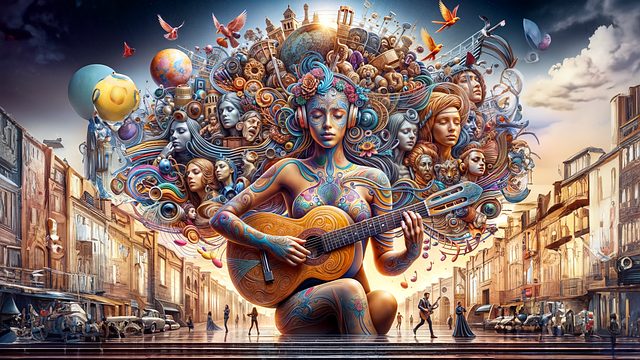
AI music tools are transforming the way musicians create and produce their art, offering unprecedented possibilities for innovation and efficiency. These tools range from basic music generation algorithms to complex machine learning models capable of composing, arranging, and even mixing songs. Among the most common types are generative AI, which can compose original melodies and harmonies; music recommendation systems that suggest chord progressions or song structures; and advanced audio processing tools leveraging deep learning for tasks like noise reduction, dynamic range compression, and mastering.
AI music tools find applications across various stages of music production. For instance, composers can use them to quickly generate initial ideas or explore different musical styles. Producers can leverage AI for tasks like automating repetitive editing jobs, enhancing sound quality, or even co-writing with virtual collaborators. Additionally, these tools are democratizing music creation by lowering the barrier to entry, allowing amateur musicians and producers to access professional-grade capabilities.
Enhancing Musical Composition with Artificial Intelligence
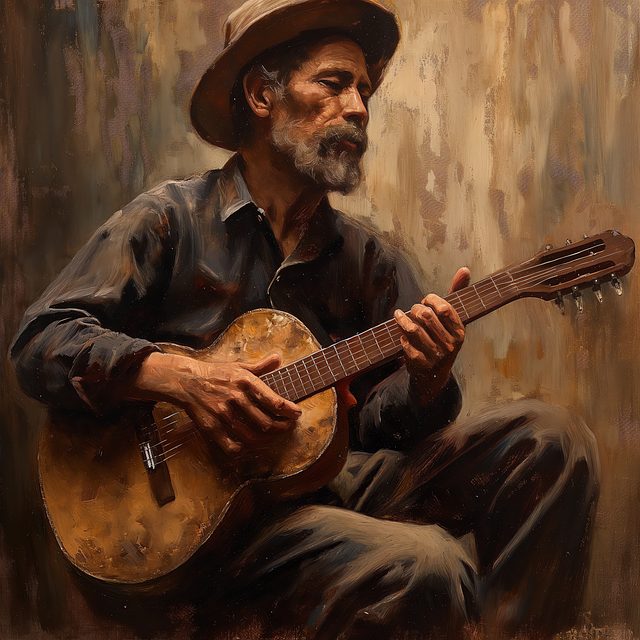
Artificial intelligence (AI) is transforming the way musicians approach musical composition, offering a new frontier of creativity and efficiency with its advanced algorithms and learning capabilities. AI music tools are designed to assist composers by analyzing existing music, generating unique melodic patterns, suggesting harmonies, and even creating entire songs based on user input. These tools can help musicians break through creative blocks, explore new sonic landscapes, and streamline their production processes.
One of the most significant advantages is the ability to personalize sound. AI algorithms can adapt to an artist’s style by learning from their previous work or specific references, enabling them to generate tailored compositions that align with their unique musical voice. This technology empowers musicians to experiment, saving time and effort in the creative process while pushing the boundaries of what’s possible in music production.
AI for Musicians: Streamlining Workflows and Boosting Productivity
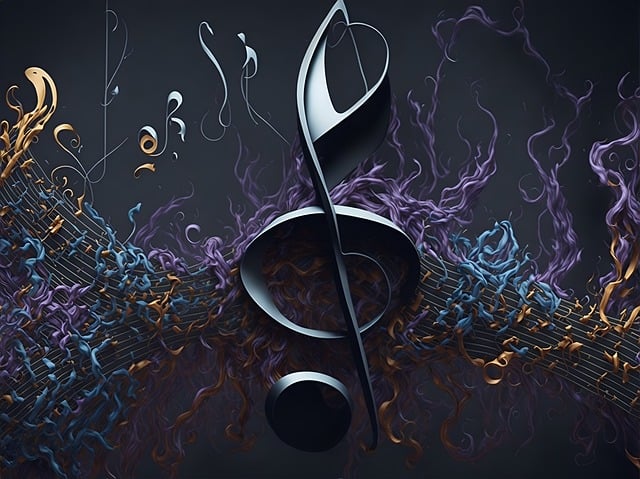
AI for Musicians: Streamlining Workflows and Boosting Productivity
Artificial Intelligence (AI) has emerged as a game-changer in the music industry, offering musicians and producers powerful tools to streamline their workflows and boost productivity. AI music tools are designed to automate repetitive tasks, such as music composition, arrangement, and even mixing, allowing artists to focus on creativity and refinement. These tools can generate melodies, suggest chord progressions, and provide real-time feedback on sound quality and style.
By leveraging AI, musicians can save significant time and effort, accelerating the entire production process. Whether it’s experimenting with new sounds, collaborating with virtual assistants, or optimizing mastering settings, AI music tools open up new avenues for artistic exploration. This technology promises to democratize music creation, empowering both seasoned professionals and aspiring artists with efficient and accessible resources.
The Future of Music: AI's Impact on Industry Trends
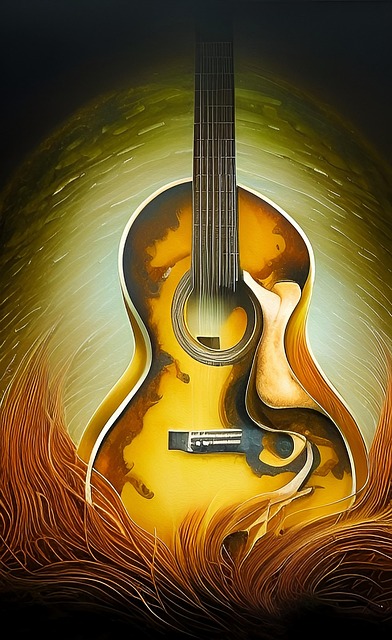
The integration of AI music tools is reshaping the musical landscape, revolutionizing how musicians create and produce their art. This technology offers an exciting glimpse into the future of music, where creativity and innovation merge seamlessly. By leveraging AI algorithms, musicians can now explore uncharted sonic territories, experiment with diverse genres, and streamline production processes. From generating melodies and harmonies to automating repetitive tasks, these tools enhance productivity and unlock new avenues for artistic expression.
As the industry trends shift towards more personalized and data-driven music experiences, AI becomes a pivotal player. It enables dynamic music generation based on user preferences, creating tailored compositions that cater to individual tastes. Moreover, AI’s ability to analyze vast musical datasets accelerates the discovery of hidden patterns, influences, and collaborations, fostering a rich and diverse musical ecosystem. With these advancements, the line between human creativity and machine intelligence blurs, paving the way for extraordinary musical innovations.
In conclusion, the integration of AI music tools has revolutionized the way musicians create and produce music. From enhancing composition to streamlining workflows, these technologies unlock new creative possibilities while boosting productivity. As AI continues to evolve, its impact on the music industry will only grow, shaping trends and opening doors to innovative expressions. For artists embracing this digital age, exploring AI music tools offers a dynamic and exciting path forward.
